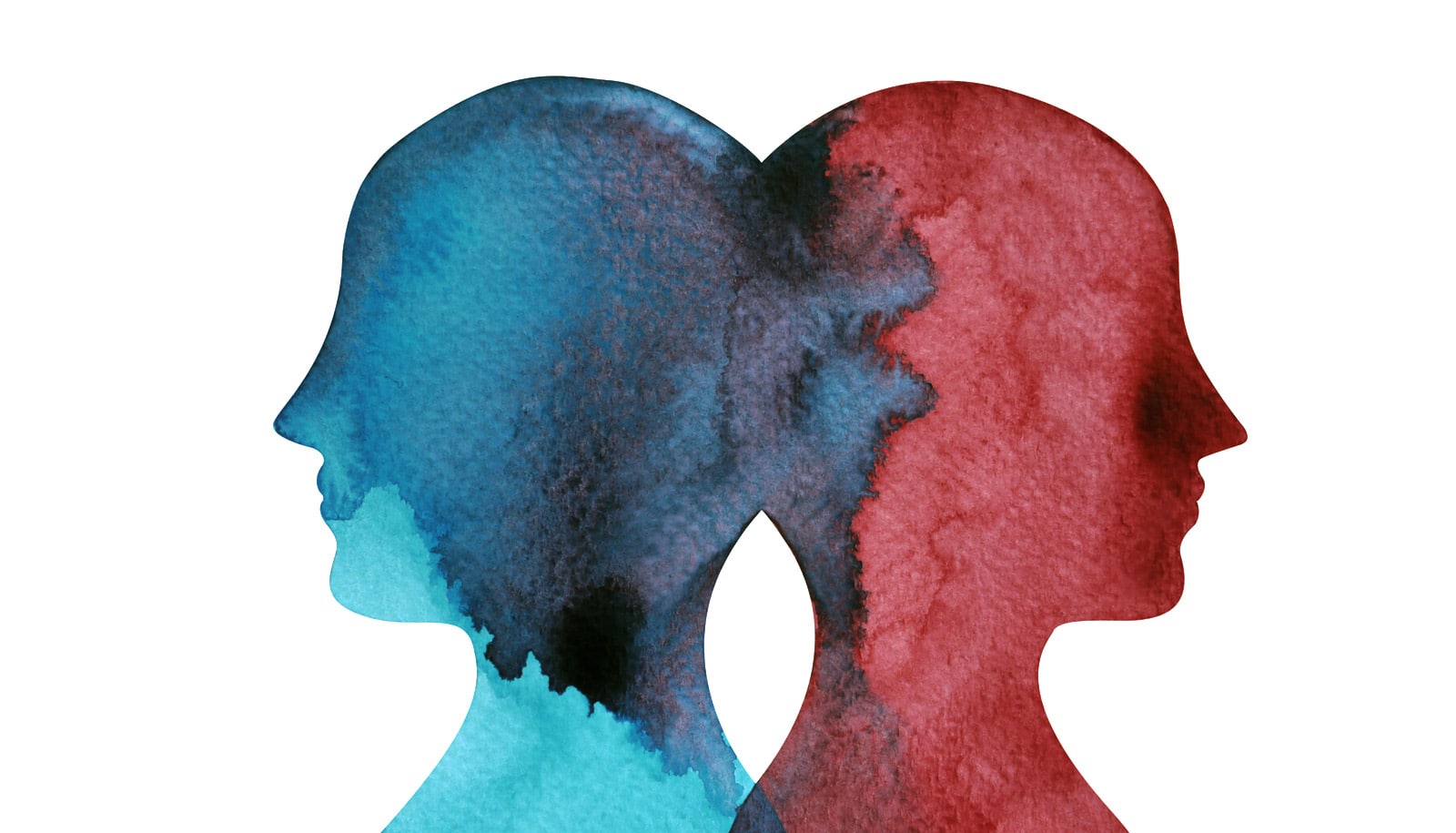
"To understand why some service members develop PTSD symptoms while others don't, researchers have often looked at how much combat or trauma a service member has experienced while deployed. Obviously, that matters," says Marcus Credé. "But people respond differently, and it seems like some, by virtue of what they went through in childhood, are simply more susceptible." (Credit: Getty Images )
Childhood abuse may up service members’ risk of PTSD
Physical, emotional, or sexual abuse in childhood may increase military service members' risk of developing PTSD.
Military service members deployed to conflict zones may be at greater risk of developing post-traumatic stress disorder if they were physically, emotionally, or sexually abused in childhood, according to a new study.
This, along with other findings from the study, help clarify how adverse experiences early in life can make people more vulnerable to trauma later on.
“To understand why some service members develop PTSD symptoms while others don’t, researchers have often looked at how much combat or trauma a service member has experienced while deployed. Obviously, that matters,” says Marcus Credé, an industrial psychologist and associate professor at Iowa State University and coauthor of the study published in the Journal of Traumatic Stress .
“But people respond differently, and it seems like some, by virtue of what they went through in childhood, are simply more susceptible.”
The US Centers for Disease Control and Prevention define a traumatic event as one “marked by a sense of horror, helplessness, serious injury, or the threat of serious injury or death.” Previous studies have linked frequent and high levels of traumatic stressors, including adverse childhood experiences , to PTSD.
But researchers have disagreed about the strength of the connection and whether the effect is “additive” or “multiplicative.”
An additive effect is like putting weights on a scale, Credé says. An adverse childhood experience is one weight. Trauma during deployment is another. PTSD or elevated symptoms develop if the cumulative weight is too heavy.
With the multiplicative concept, it’s more like a chemical reaction. Someone who was abused as a child may respond more strongly to trauma as an adult because their system for coping has been affected.
PTSD puzzle
The researchers’ first study was a meta-analysis of 50 peer-reviewed journal articles.
“Each is a puzzle piece, and we put them together to get a complete picture to find out what is known about adverse childhood experiences with PTSD symptoms on their own and whether it explains PTSD symptoms even after we control for combat exposure. The answer to that is yes,” says Credé.
To test whether the effects were additive or multiplicative, the researchers followed up with a second study. They used pre-existing survey responses from service members before they were deployed to Afghanistan, immediately after their return to the US, and then three and six months later.
The dataset provided information about the service members’ childhood experiences, along with trauma exposure during deployment and PTSD symptoms back in the US. The researchers decided to include traumatic events not directly related to combat, including sexual assault and hazing by other service members.
Credé and his coauthors found evidence that adverse childhood experiences had both additive and multiplicative effects.
There are a few mechanisms that can help explain why adverse childhood experiences could make people more vulnerable to trauma later on, Credé says.
“If the abuse comes from a parental or authoritative figure in your life, you become wary of people in general, which makes it harder to trust others and form social relationships,” says Credé, adding that social support serves as an important buffer to trauma. “If you’re worried about forming attachments, then you have no one to go to, to say, ‘This is what I’ve been going through.'”
Another mechanism is biological. When there’s a stressor, the body releases cortisol until a feedback loop indicates it’s safe to return to a normal state. But chronic, prolonged stressors start to break down the feedback loop.
“When you have an elevated cortisol response, even small stressors can lead to a very strong secretion of cortisol. Everything is threatening to you, which is exhausting and can make you more irritable and hypervigilant. It can wear on relationships,” says Credé.
Mental health stigma
An estimated 70% of Americans experience a traumatic event at least once in their lifetime. But previous research suggests some who enter the military may have experienced more abuse or trauma in childhood than the general public. This means they could have an elevated risk for PTSD symptoms. But stigma around mental health in the military may block service members from seeking professional help.
To address this, Credé and his coauthors offer several recommendations. One is incorporating more psycho-education into military training to help service members understand how they might respond to situations and what resources are available. Another is enhancing the military’s aptitude test, which places service members in positions that match their skillsets and abilities, to screen for adverse childhood experiences; those who are most at risk for PTSD may be better suited for certain positions.
The study appears in the Journal of Traumatic Stress . Additional coauthors are from the University of Alabama and Iowa State.
The Army Analytics Group-Research Facilitation Laboratory funded the work.
Source: Iowa State University
The post Childhood abuse may up service members’ risk of PTSD appeared first on Futurity .
Share this article:
This article uses material from the Futurity article, and is licenced under a CC BY-SA 4.0 International License. Images, videos and audio are available under their respective licenses.
Related Articles:
How warped bonding traps sex-trafficked children
April 4, 2019 • futurityHormone duo may protect some women against PTSD
April 23, 2019 • futurityLinks/images:
- https://doi.org/10.1002/jts.22940
- https://www.futurity.org/children-violent-injuries-ptsd-2903142/
- https://www.futurity.org/military-sexual-assault-depression-baby-bonding-2670892-2/
- https://www.futurity.org/veterans-mental-health-va-2317872-2/
- https://doi.org/10.1002/jts.22940
- https://www.news.iastate.edu/news/2023/06/07/ptsd-military
- https://www.futurity.org/childhood-abuse-ptsd-military-2932422/
- https://www.futurity.org


